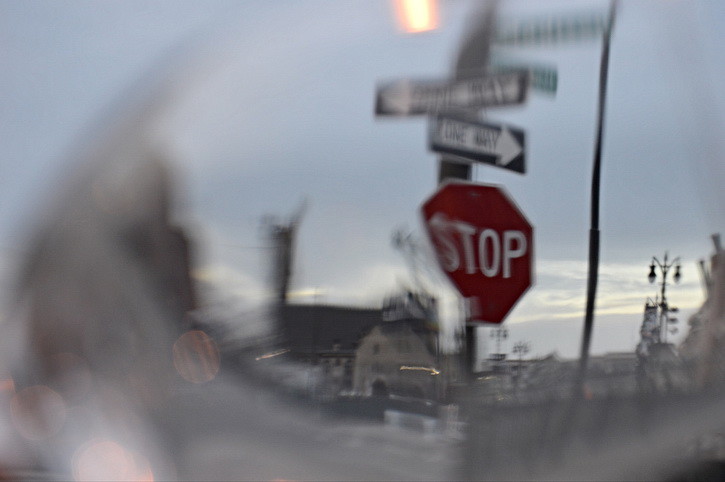Car accident dizziness is a common side effect of vehicular collisions. If the dizziness affects your day-to-day life, please get in touch with one of our Eason & Tambornini brain injury attorneys for a free consultation.
Our brain injury attorneys will explain what car accident dizziness is, why you have it, and how long this dizziness typically lasts after a concussion. Additionally, they will help you understand your options for getting compensation for your injuries.
Learn more about our Sacramento Car Accident Attorney Services.
Why do I feel dizzy after a car accident?
 Dizziness is a symptom that typically accompanies whiplash after a car accident. It is the feeling of lightheadedness caused by sudden head movements and the sensation of slowly moving even though you’re motionless.
Dizziness is a symptom that typically accompanies whiplash after a car accident. It is the feeling of lightheadedness caused by sudden head movements and the sensation of slowly moving even though you’re motionless.
In a whiplash injury, the brain suddenly accelerates and decelerates inside the skull in response to an external force, such as a car collision. The sudden flexion and extension of the neck cause the soft structures to stretch abnormally, resulting in tiny tears in the muscle fibers and tendons and painful neck movements.
However, whiplash doesn’t affect just the soft structures of the neck. It can also affect the neural pathways responsible for balance perception, spatial awareness, coordination, and proprioception. If these are affected, the signals from the vestibular system could be disrupted to the part of the brain that controls balance, spatial awareness, and coordination.
What is vertigo?
Vertigo from a car accident is similar to dizziness and very common. You feel lightheaded when you suddenly move your head or feel like the room is spinning around you even though you’re not moving. You may also feel unbalanced and like you are tilting to one side or pulling in one direction.
Vertigo could signify that there is a damaged nerve in your neck region. A nerve injury could disrupt the balance and coordination signals from your brain.
Vertigo could also indicate cerebellum and brainstem injury from the whiplash injury. These areas of the brain are responsible for coordinating and regulating posture and balance in movements and integrating and sorting sensory information. Located at the skull base, this brain region is often affected by whiplash injuries.
Why do I get post-car accident dizziness?
The dizziness usually goes away in time, but if it persists, it could indicate a more severe injury. Some of the reasons for post-car accident dizziness are damage to proprioceptors, benign paroxysmal vertigo, blood vessel damage, and brain injury.
Proprioceptors are the nerves responsible for detecting position and movement. Damage to these nerves can disrupt signal transmission.
Car Accident Injuries that Cause Dizziness
Benign paroxysmal vertigo refers to damage to the inner ear otoliths. These tiny calcium crystals move against the inner ear nerve endings during movement and tell the brain what your head position is. During trauma, these otoliths can be jarred out of their usual locations and affect their function.
Blood vessel damage could result in inadequate blood supply to the brain and affect its normal functioning. Lastly, brain injury can also cause post-car accident dizziness, significantly if the cerebellum and brainstem are affected.
How long does the dizziness last after a concussion?
Dizziness after a concussion typically lasts for a few days and resolves independently. However, it’s not unusual for complete recovery from dizziness, concussion, and other symptoms to take place months after the initial trauma.
Treatment for Dizziness
Treatment for dizziness includes rest, anti-nausea medications, and pain pills for headaches and migraines. If these do not improve your symptoms, you can visit your doctor or a chiropractor for further assessment and additional therapy like vestibular and spatial awareness training, cervical decompression, or neuromuscular re-education training therapy.
These can be expensive, especially if your insurance company doesn’t cover them. However, you may need these additional therapies if the dizziness affects your personal, social, and professional life.
What can you do?
If you were in a car accident that wasn’t your fault and have persistent dizziness that needs more than just conventional treatment methods, help is available.
Our Eason & Tambornini brain injury attorneys will help you understand how dizziness and vertigo can occur after a car accident, why you may suffer from post-car accident dizziness, how long dizziness usually lasts, and standard treatment options.
Call one of our auto accident lawyers in Sacramento at (916) 438-1819 to schedule a free consultation. There is no risk or obligation to move forward. If we agree to represent you, you pay no fees unless you win a settlement.
The information provided on this blog is for informational purposes only and not a substitute for professional medical advice, diagnosis, or treatment. Always seek the advice of your physician or other qualified health provider with any questions you may have regarding a medical condition. Never disregard professional medical advice or delay in seeking it because of something you have read on this blog.
